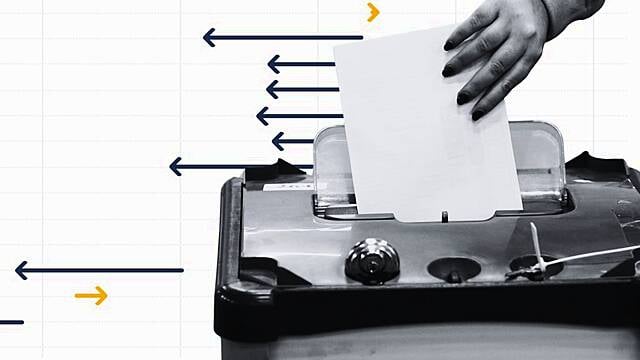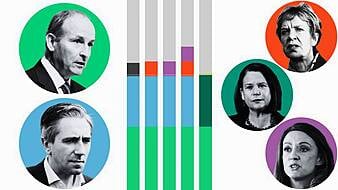The general election saw voter turnout reach record low levels, but academics and even the Electoral Commission are sceptical about the reliability of the figures.
Turnout in the 2024 election fell to 59.7 per cent, the lowest in over a century.
However, Art O'Leary, the chief executive of the Electoral Commission, has admitted that as many as 500,000 people could be on the electoral register by mistake due to duplications or deaths.
That would mean turnout in the election may not be as low as the data suggests.
Mr O’Leary told RTÉ radio that the official turnout figure of 59.7 per cent was “a very blunt measure by which to judge public engagement.”
He said the electoral register, which is in fact 31 separate databases, was not complete or as accurate as it should be.
Mr O’Leary confirmed there was a project underway to create a single database using dates of birth and Eircodes which would allow duplicates to be identified.
“But it's not going to be fixed tomorrow or the day after,” he said. “It's a longer term project.”
Despite the scepticism about the overall figures, there was a distinct downward trend in participation in this year's election – turnout dropped in almost every constituency compared to the last election.
Stefan Müller, an associate professor of politics at University College Dublin, said the downward trend in Ireland was very worrying, as high turnout levels are a good indicator of a healthy democracy.
“There is quite a large share of the electorate that doesn't vote at either important elections or at local elections,” he told RTÉ.
Mr Müller said this may be due to systematic barriers to voting, such as work or childcare responsibilities during polling day, or that a lot of potential voters are simply not interested in politics anymore.
He said it was an “embarassment” that authorities cannot conclusively say how high or low turnout is, but nonetheless it was important to think about ways of making it easier to vote.
“One example would be postal voting. So that means that everyone can just cast their ballot over post. And it exists in quite a lot of countries, and it's very popular in many countries.
“For example, in Germany, 50 per cent of the votes that were cast at the last general election were actually postal votes.
“In Ireland, the problem with postal voting is that the campaigns are only three weeks, and it's a bit unpredictable when the election will take place, so there's not that much time to organise this.

“Another way of increasing turnout would be making it possible for voters to, for example, go to a local library or a public building during the last week of the campaign, let's say, and cast their ballot there, so it doesn't have to be on election day.
“These are two options that should be discussed that would just make it easier for voters to cast their ballot.”
Mr O'Leary said the Electoral Commission would undertake a study to get “a better idea about why people didn't vote in this election.”
He said research will also be completed on the possibility of introducing postal voting in the future, as at present “our voting system is quite restrictive.” – Additional reporting: Vivienne Clarke







